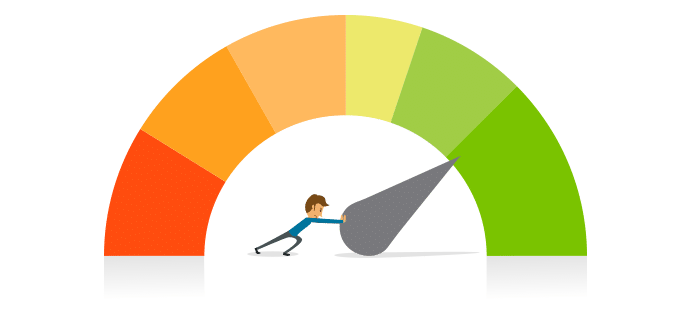How to Improve Your Credit Score in India: A Comprehensive Guide for 2025
A credit score is not just a number; it is your financial fingerprint that determines your eligibility for loans, credit cards, and more. In India, having a good credit score—typically 750 or above—opens the doors to financial opportunities like better interest rates and higher credit limits. Conversely, a poor credit score can act as a barrier to achieving your financial goals. In this comprehensive guide, we will dive deep into proven strategies, debunk common myths, and answer trending questions about improving your credit score. By implementing these tips, you can take charge of your financial future.
What is a Credit Score and Why Does It Matter?
A credit score is a three-digit number calculated by credit bureaus such as CIBIL, Experian, and Equifax. It reflects your creditworthiness based on factors such as repayment history, credit utilization, and the length of your credit history.
Improve Your Credit Score

Why Your Credit Score Matters
- Loan Approvals: Lenders rely on your credit score to assess your repayment capacity. A high score increases the chances of approval.
- Better Interest Rates: Borrowers with excellent scores are often offered lower interest rates, saving money in the long run.
- Higher Credit Limits: A good score signals financial responsibility, allowing lenders to trust you with higher credit limits.
How is a Credit Score Calculated?
| Factor | Weightage | Example Focus Areas |
|---|---|---|
| Payment History | 35% | Timely payments of EMIs and bills. |
| Credit Utilization Ratio | 30% | Keeping usage under 30% of limits. |
| Length of Credit History | 15% | Maintaining old credit accounts. |
| Credit Mix | 10% | Balancing secured and unsecured loans. |
| New Credit Applications | 10% | Avoiding frequent credit inquiries. |
Step-by-Step Guide to Improve Your Credit Score
1. Check Your Credit Report Regularly
The first step to improving your credit score is understanding it. Obtain your free credit report from platforms like CIBIL, CreditMantri, or Paisadekho. Errors in your report, such as incorrect account details or duplicate entries, can lower your score. Identify these discrepancies and dispute them with the credit bureau for rectification.
2. Pay Your Bills on Time
Your payment history accounts for 35% of your credit score. Late payments can leave a lasting negative impact. Set up alerts, automate payments, and prioritize essential bills to ensure timely payments.
3. Maintain a Low Credit Utilization Ratio
Credit utilization is the ratio of your credit card balance to your credit limit. Keeping this ratio below 30% indicates responsible credit usage.
Improve Your Credit Score

Conclusion
Improving your credit score is a journey that requires consistent effort and financial discipline. By understanding the factors that influence your score and adopting best practices, you can unlock financial opportunities and secure your future. Start today, and take the first step towards a better credit score and a brighter financial future.




